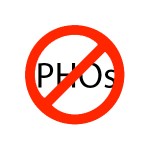Strengthening food safety culture within a company goes beyond the quality function in raising the banner for food safety: Engagement across an organization, from human resources to maintenance to operations are essential. In a recent Q&A with Food Safety Tech, Laura Nelson, vice president of business development and professional services at Alchemy Systems, discusses how companies can train employees working on the plant floor to help them attain a level of empowerment to take an active, preventative role in food safety, as well as how to engage executive leadership in sharing and evaluating metrics.
Food Safety Tech: How does the accountability of employees play into FSMA implementation?
Laura Nelson: FSMA is going to be additive to what [companies] are doing now in some ways. When you look at FSMA, I think about formalized programs for some companies that may not have a full-blown environmental program that is managed as a preventive control. There’s a lot of training [involved], not only in executing the environmental program, but also in how you maintain your environment to prevent those microbial niches. You start to drill back from the actual protocol of environmental monitoring, and what you do when you receive a positive listeria. How can we start educating employees to be able to recognize the niche? [For example,] is it a cramped pushcart, or damage to [something] holding product where it can’t be properly cleaned? You start educating employees at the level that they can play a more preventative role [in recognizing] they need to take equipment out of commission or send it to maintenance because it can’t be cleaned. This is when we start to see a real change in the culture of a plant. People move beyond these SOPs and requirements to a much more facilitative and educational role to drive the support of some of the FSMA requirements.
The other thing I see is record keeping: There’s a big criticality in maintaining records. People maintain a lot of data now, and there’s a lot of ancillary information included. We just haven’t had the scrutiny on record keeping. The auditors will look through it and find the information they need, but it will be a different [level of] scrutiny when FDA inspectors start to look at the data out there. I think that provides a big opportunity for industry to look at how they maintain records, what they use, and how to capture it. Again, it rolls down to employees—educating them on what is a proper record.
FST: Is facilitating employee awareness and training a challenge faced by more smaller companies versus larger organizations?
Nelson: I think large and small companies face the same challenge, and that is to elevate the knowledge of their employees (they are the eyes and ears) to help them maintain your food safety programs. It goes beyond an SOP on how to clean a piece of equipment or wash their hands. It’s more of understanding the “whys” behind it so they can be line-of-sight. They’re [on the floor] 24/7; they’re the ones who see equipment getting damaged, or drips and leaks. For them to understand and recognize what kind of risk that introduces into a plant [enables them] to raise their hand to prompt some corrective action.
There are food companies out there that are looking to achieve that level of autonomy of giving employees the ability to stop a line because there’s a food safety issue. These are hourly workers that have the autonomy to do that. That’s a huge thing. If you’re able to do that, you’ve far surpassed the basic compliance of any kind of training or education. You’re really looking at an organizational culture that has embraced true food safety preventative controls program.
FST: Food Safety Culture makes the connection between employee behavior and accountability, and establishing metrics. What are your thoughts on Food Safety Culture moving forward?
Nelson: It’s very hard to monitor behaviors. It’s easier to do classroom training and check that box. [It’s the] “how-to”: How do you do that? How do you mature your food safety culture to a point where you get to that autonomy point? We know that you need to go beyond letting employees read SOPs and sign-in [sheets], and say they understand it and move on. You have to move beyond classroom training where you’re giving employees what they need to know and telling them the requirements. You have to connect those behaviors, and then monitor and observe those behaviors, and validate that you’re executing on them. Then it’s applied onto the plant floor.
Embrace the culture of helping each other. Once you’ve achieved this: if your employees are executing when you’re not looking, that’s culture. It’s integrated and something that people embrace.
We did some research on the topic and developed an iPad coaching tool that allows people to systematically gather the data, to capture and automate it. We found that supervisors appreciated it because they had something that was clear and gives them dialogue on what to say in the event that something was missed.
FST: Where should companies focus when training and educating employees to reach a stage of empowerment?
Nelson: The training needs to be at the [appropriate] education level; it needs to be in the language they that understand. [For example,] companies may be able to do a lot more with pictures to accommodate non-English speaking folks in their plant.
Employees need to be challenged and quizzed to make sure they understand the information. The training itself needs to be tied to metrics: What are you trying to achieve as a plant and therefore [need] to train people on? This should be tied into factors such as customer complaints, quality issues, and what has a direct impact on what employees are doing or not doing, as this [leads to] much more accountability. That’s where the role of the frontline supervisor is critical. That position is absolutely key to the success of driving food safety program compliance. We have to recognize that our frontline supervisors need the skills to motivate employees and communicate effectively with them, including discussing the challenges in conflict resolution.
Elevating food safety so employees as are aware. Awareness programs have a documented advance to people trying to drive specific requirements. We’ve seen a lot of people develop awareness programs around food safety and provide the focus in the plant on key elements that people struggle with. That way, they’re able to have multiple touch points (posters, digital signage, huddle guides). This is absolutely key as we move forward: not just training, but ongoing awareness.
FST: How can companies further educate management to understand the value of food safety culture and reach a point of alignment?
Nelson: There is and can be a pretty big disconnect between executive leadership and what is going on related to food safety. When you talk about the collaboration of the team and those within the plant, you have to include your executive management team. They should understand the different activities and efforts that go into driving a food safety program in a plant. When talking about metrics and evaluating effectiveness, that data should be shared with the executive team on a routine basis so that everyone is clear on what is happening in the plant as well as the results. If the results aren’t where we want them to be, and we’re not in a continuous improvement mode, then what is it going to take to get there? That dialogue should be had.
If you don’t continue to educate your executive team on what issues you’re seeing, then you start creating a divide within the organization. That’s part of what stems from people struggling with a lack of resources and time; this disproportionate disconnect is between other activities within a plant. Communication needs to be routine; people need to be held accountable for metrics so that you’re actually tracking to them. And if you need [more] resources, it’s the perfect way to start building a case for getting additional sales, technology, programs or procedures.
Food Safety Tech’s Food Safety Culture Series
Embed Food Safety Culture. There’s No On/Off Switch
Food Safety Culture: Measure What You Treasure






















